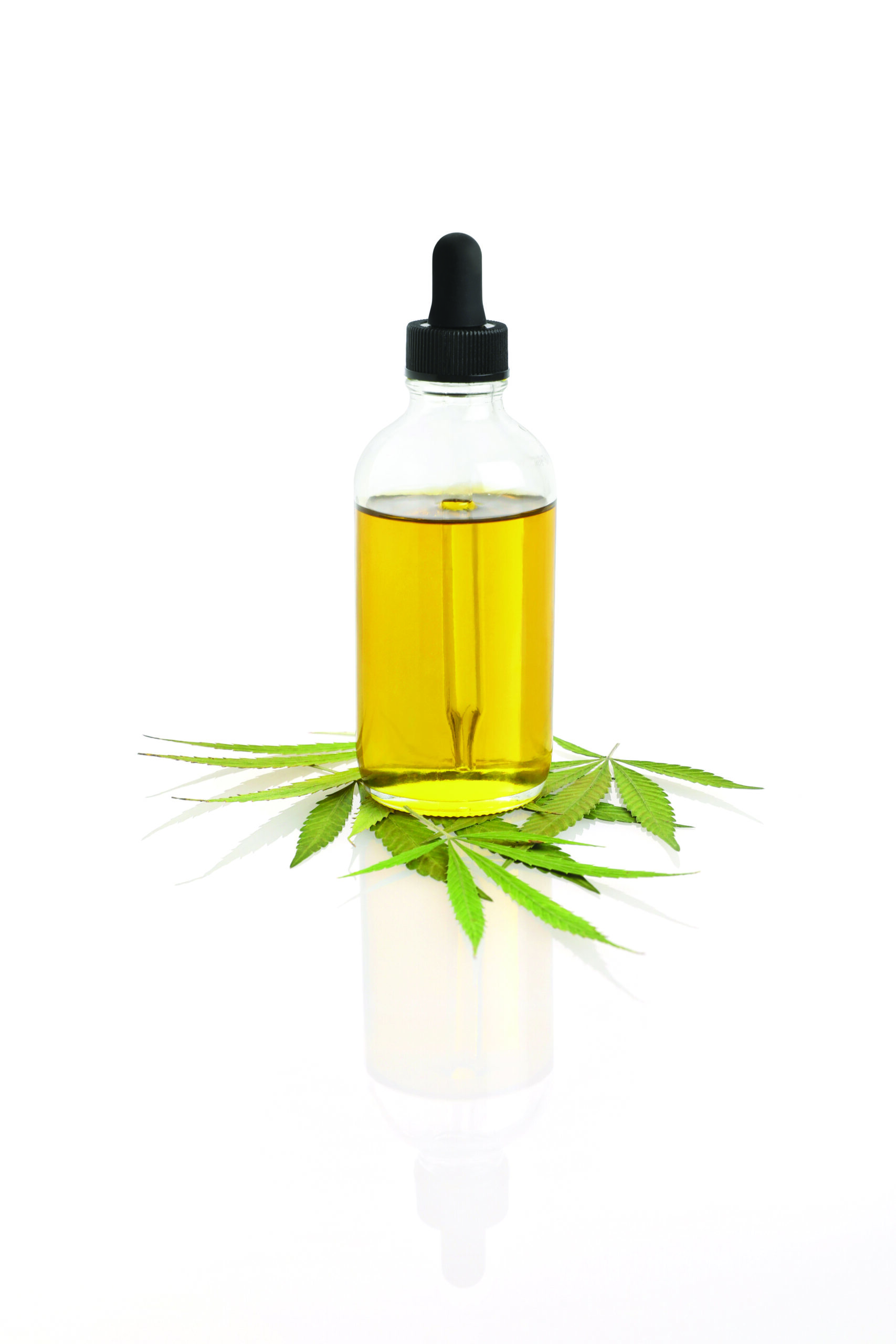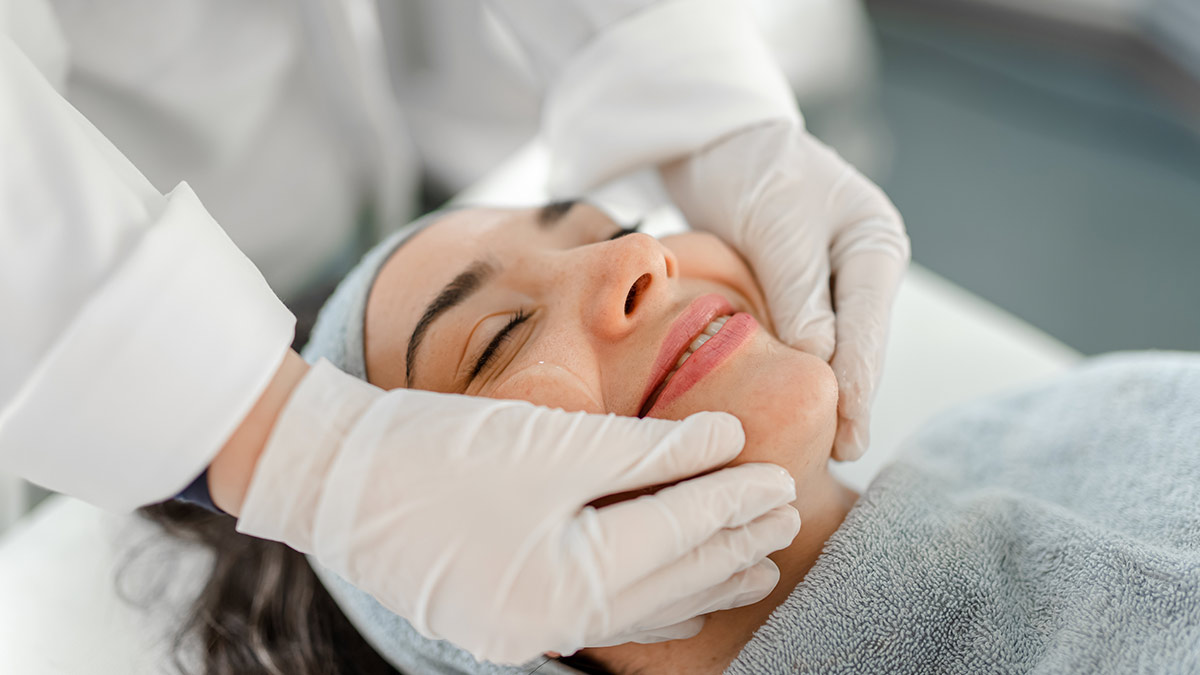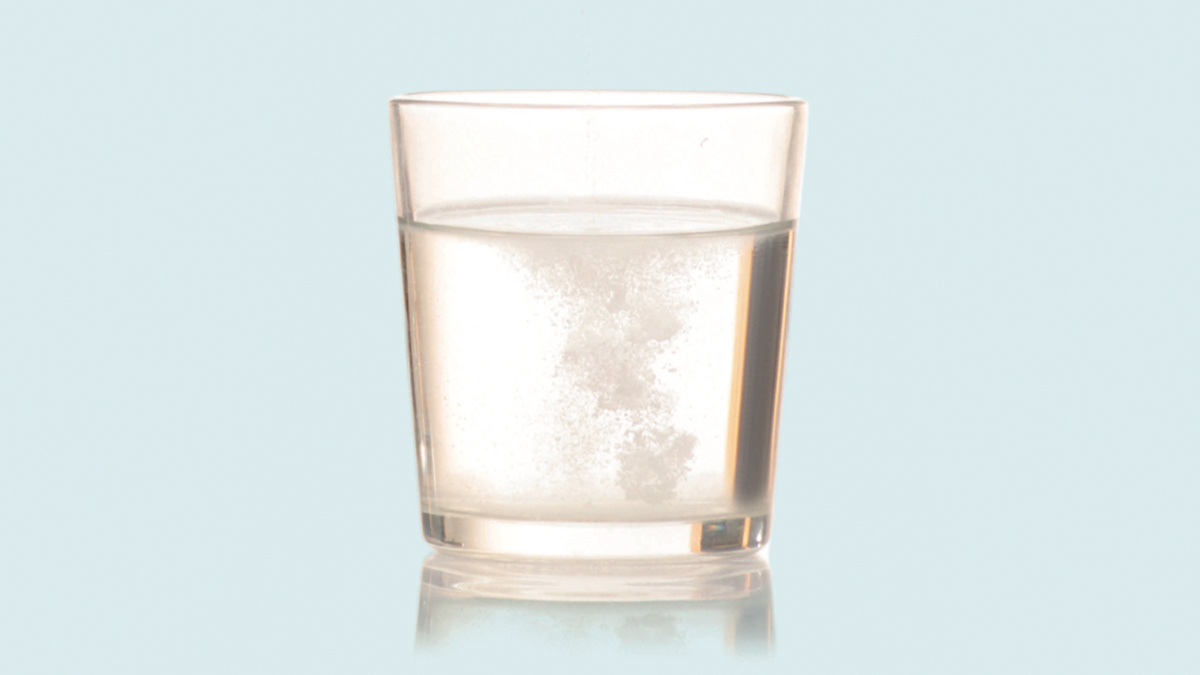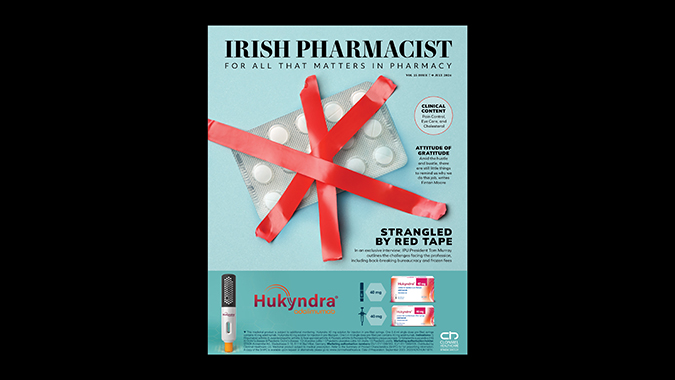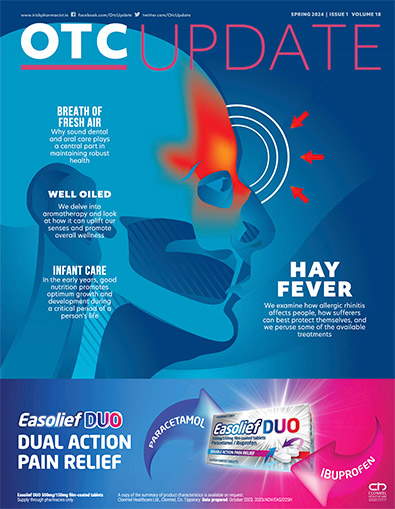Dr Donna Cosgrove PhD MPSI looks at the potential health benefits of CBD, including the evidence base and pharmacokinetics
Introduction
Cannabidiol (CBD) is one of the naturally-occurring cannabinoids found in cannabis plants and also produced synthetically.1 In addition, cannabis contains tetrahydrocannabinol (THC) and about 480 other active cannabinoids (CBs).2 Cannabis production ranges from plants produced for recreational use, to those from which hemp fibre is derived. In plant strains used for recreational purposes, the quantity of THC exceeds that of CBD, whereas hemp cultivars produce substantially less THC and higher levels of CBD.1 In Ireland, the possession of products containing THC, which is the main psychoactive constituent of cannabis, is unlawful, and strictly controlled under the Misuse of Drugs legislation in Ireland. Although CBD is also derived from cannabis, it is said not to be psychoactive, and is not controlled under the same legislation.3 CBD, unlike THC, does not bind in the same way to receptors which are responsible for the rewarding effects of cannabis and for the feeling of euphoria. Many articles state that CBD is a non-psychoactive substance, however, it has been observed to alter mood, anxiety as well as cognition.2
CBD is generally well tolerated and has a good safety profile. Currently, there is no evidence to suggest recreational use of, or any public health-related problems associated with, the use of pure CBD and no indication of CBD possessing any abuse or dependence potential.1 Research studies have reported that even high doses of oral CBD do not cause THC-like effects (ie, cognitive impairment, increased heart rate/tachycardia, dry mouth).
Clinical trials have supported the use of CBD as an effective treatment for certain forms of epilepsy, and preliminary evidence suggests that CBD may be a useful treatment for a number of other medical conditions. CBD can be ingested in various routes and is available in the form of oils, lotions, edibles, teas, or smoked.2 The most pertinent reported adverse effects may be as a result of drug-drug interactions between CBD and patients’ existing medications.
Health Benefits and Evidence
The Health Products Regulatory Authority conducted a review in 2017 of the available scientific evidence for the use of cannabis in medical conditions, concluding that there was a moderate benefit for cannabis, but in a small number of conditions.3 The range of conditions for which CBD has been assessed is diverse, consistent with its neuroprotective, antiepileptic, hypoxia-ischemia, anxiolytic, antipsychotic, analgesic, anti-inflammatory, antiasthmatic, and antitumor properties. The clinical use of CBD is most advanced in the treatment of epilepsy: In trials, CBD has been demonstrated as an effective treatment for at least some forms of epilepsy.1
There is no evidence to suggest recreational use of, or any public health-related problems associated with, the use of pure CBD and no indication of CBD possessing any abuse or dependence potential
The exact mechanism of CBD’s action on epilepsy is unknown. In vitro, CBD has been shown to decrease the amplitude and duration of epileptiform local field potentials in neurons.2 The research into the use of CBD in other medical conditions is less advanced than for treatment of epilepsy. For most other indications, there is only pre-clinical evidence (from animal and cell-culture studies), or a combination of pre-clinical and limited clinical evidence.
A recent systematic review found some positive evidence for CBD in the treatment of drug addiction: A limited number of preclinical studies suggest that CBD may have therapeutic properties on opioid, cocaine, and psychostimulant addiction, and some preliminary data suggest potential benefit in cannabis and tobacco addiction in humans.1 Although promising, considerably more research is required to comprehensively evaluate CBD as a potential treatment.
CBD has also been observed to reduce some of the positive symptoms of schizophrenia. In studies using animal models for schizophrenia, CBD has been shown to improve psychotic symptoms, but there are very few and limited studies available in humans. In one study,4 CBD was shown to have an additive effect when used with conventional antipsychotic drugs: Together, they were better able to control positive symptoms such as hallucinations and delusions than conventional medication alone. It has been proposed that CBD might exert its antipsychotic effects through elevating levels of anandamide, a cannabinoid produced by the body that seems to offer protection from psychosis.5
CBD also has some pharmacological characteristics that might also be of benefit in the treatment of Alzheimer’s disease (AD). In case reports of traumatic brain injuries, it has been found to reduce brain damage after cerebral trauma by improving metabolic activity. Those findings have been confirmed in brain imaging (MRI and positron emission tomography) studies.2
While THC has been shown to be anxiogenic in some cases, CBD possesses some anxiolytic potential. Preclinical evidence conclusively demonstrates CBD’s efficacy in reducing anxiety behaviors in PTSD, generalised anxiety disorder, Parkinson’s disease, OCD, and SAD.6 In an animal model, CBD modified cerebral blood flow in brain areas that play a role in anxiety symptoms: Amygdala, hippocampus, hypothalamus,= as well as cingulate cortex. In human brain imaging studies, a decrease in activation in the amygdala was observed after administration of CBD.
In another study investigating the effect of CBD administration during a public speaking test, a reduction in anxiety, cognitive impairment as well as discomfort in speech performance was reported at doses of 600mg.2 CBD’s anxiolytic actions appear to depend upon CB1 and 5-HT1A receptors in several brain regions; however, further investigations may uncover additional unknown mechanisms.6
As endocannabinoids have been shown to play a role in the circadian rhythm, CBD is thought to have an effect on sleep. CBD has a sedating effect which appears to be dose-dependent, however, again, there are few (and small numbered) human studies available that assess the effect of CBD on sleep.2
In another study investigating the effect of CBD administration during a public speaking test, a reduction in anxiety, cognitive impairment as well as discomfort in speech performance were reported
A review published earlier this year7 investigated the use of CBD and its potential role in pain management. Because there are currently no approved pharmaceutical products that contain CBD alone, the review focused on nabiximols (THC/CBD in a 1:1 ratio). Indeed, multiple systematic reviews and meta-analyses evaluating randomised trials of cannabis and cannabinoids have found some evidence of efficacy for nabiximols or cannabis in chronic pain, especially neuropathic pain; however, it is difficult to definitely attribute such therapeutic properties to CBD in particular since it is administered with THC.
Recent human studies have also reported a use for CBD in transplant acceptance, ie, decreasing the development of graft vs host disease after hematopoietic cell transplants. Other recent reports have failed to demonstrate CBD efficacy to reduce symptoms of ulcerative colitis, chronic pain in kidney transplant patients, and experimentally-induced anxiety.1
Licensed Products
CBD is presently licensed (including in Ireland) in combination with THC in a 1:1 ratio (nabiximols; Sativex) for moderate-to-severe spasticity due to multiple sclerosis (MS) in patients who have not responded adequately to other antispasticity medication. Epidyolex, a liquid oral formulation of CBD (with a purity of 98 per cent CBD and less than 0.15 per cent THC) is also licensed in Ireland. It has shown positive results in phase 3 trials for Dravet and Lennox-Gastaut syndromes (childhood seizures), which are both treatment-resistant disorders.1
The side-effects most commonly associated with a high dose of Epidyolex include digestive problems, rash and drowsiness, as well as potential for liver damage in patients taking certain other medications, ie, valproic acid.5 Of note, although CBD is also suggested by some as a potential treatment for depression, the SPC of Epidyolex includes potential suicidal ideation as a possible adverse reaction.8
Other products currently not licensed here include Grow PCBD45, which is intended for pain management and anxiety, and Arvisol, an oral tablet containing pure CBD, which is intended for the treatment of various neurological disorders, including schizophrenia and epilepsy. Zynerba Pharmaceuticals is developing a CBD gel designed for transdermal use. The target indications are Fragile X syndrome, adult refractory focal epilepsy, and encephalopathies that are developmental and epileptic in nature.1
In many CBD trials conducted so far, CBD has proved at least more tolerable than existing alternatives, which is important because people typically require large doses of CBD to experience a clinical benefit. This is due to the poor absorption of CBD by the body, with most of every dose being excreted before it can take effect.5
Pharmacokinetics
The range of conditions in which CBD is being tested is very broad, but it is a compound with far-reaching, if poorly understood, physiological effects. Up to 20 possible mechanisms of action have been suggested for CBD.5 In the cannabinoid (CB) system, there are two main CB receptors, CB1, primarily located in the central nervous system with some expression in peripheral tissues; and CB2 receptors, found mainly in the periphery on cells with immune function, in the gastrointestinal tract, and at low densities in the central nervous system.1 These are normally activated by endogenous CBs, including anandamide and 2-Arachidonoylglycerol.
THC binds largely to CB1 receptors, whereas CBD binds mostly to CB2 receptors, found on cells of the immune system (T and B lymphocytes, macrophages and monocytes) and not as highly expressed in the central nervous system.2 Some studies have also shown that CBD may reduce or antagonise some of the effects of THC. The mechanism for this is unclear, with some suggesting that it may be a weak CB1 antagonist. CBD may also interact with the endocannabinoid system through indirect mechanisms, such as enhanced action of the endogenous anandamide.1 CBD, unlike THC, does not bind to cerebral CB1 receptors, which are responsible for the rewarding effects of cannabis and for the feeling of euphoria.
The activation of CB2 receptors decreases the release of neurotransmitters glutamate, gamma-aminobutyric acid (GABA), serotonin and noradrenaline and provides synaptic control of upstream neurotransmission.2 CBD has been shown to affect signaling systems, including via glycine, adenosine, glutamate, serotonergic, TRPV-a (vanilloid), alpha-1 adrenergic and mu-opioid receptors. CBD acts on adenosine levels by reducing reuptake, which has been associated with neuroprotection and anti-inflammatory processes in the brain. It also causes cerebral vasodilation through the mediation of nitric oxide production.
CBD seems specifically to mediate its antiepileptic effects by binding to a protein called GPR55, which can otherwise trigger the onset of seizures by promoting the hyperactivation of neurons.5
CBD is extensively metabolised in the liver by cytochrome P450 enzymes, including CYP1A1, CYP1A2, CYP2C9, CYP2C19, CYP2D6, CYP3A4, and CYP3A5. The two main isoforms involved are CYP3A4 and CYP2C19.1 It has been shown in vitro to be a potent inhibitor of several enzymes which are responsible for the metabolism of many medications (see Table 1). However, CBD undergoes a significant first-pass metabolism in the liver after ingestion, with its bioavailability after oral consumption estimated as 6 per cent. CBD’s primary active metabolite is 7-hydroxy-CBD (7-OH-CBD). CBD is very lipophilic and easily passes the blood-brain barrier. The half-life of CBD depends on the route of administration, but half life after oral ingestion is two-to-five days.2

Role of the Pharmacist
In addition to the large selection of CBD products available through pharmacies, there are many products available online for the treatment of a myriad of conditions. In one study that performed chemical analyses on 84 products purchased online from 31 companies, only 31 per cent were accurately labelled with regard to CBD content.5 One important role for pharmacies is to guide individuals who are interested in CBD products towards those brands that are most reliable.
Ideally, eventually the content of CBD products will be regulated in order to guarantee a particular dose or content; and CBD dosing guidelines will be established for different indications.2 Although CBD has been shown to be very safe and there is some evidence for the utility of CBD in many conditions, caution is still required in recommending use in a lot of these conditions before more definitive results are established. Although CBD has a low oral bioavailability, it is still important to be aware of the potential effects of CBD on other medications in vivo and to take this into account when discussing its use with patients.
References
- World Health Organisation Expert Committee on Drug Dependence. (2018). Cannabidiol (CBD) Critical Review Report. Available who.int/medicines/access/controlled-substances/CannabidiolCriticalReview.pdf
- Oberbarnscheidt T, & Miller NS (2020). The Impact of Cannabidiol on Psychiatric and Medical Conditions. Journal of Clinical Medicine Research, 12(7), 393.
- Department of Health. (2019). Cannabis For Medical Use. Available https://www.gov.ie/en/collection/fb8912-cannabis-for-medical-use/.
- McGuire P, Robson P, Cubala WJ, Vasile D, Morrison PD, Barron R, … & Wright S (2018). Cannabidiol (CBD) as an adjunctive therapy in schizophrenia: A multicenter randomized controlled trial. American Journal of Psychiatry, 175(3), 225-231.
- Eisenstein (2019). The reality behind cannabidiol’s medical hype. Nature 572, S2-S4 . Available https://www.nature.com/articles/d41586-019-02524-5.
- Blessing EM, Steenkamp MM, Manzanares J, & Marmar CR (2015). Cannabidiol as a potential treatment for anxiety disorders. Neurotherapeutics, 12(4), 825-836.
- Boyaji S, Merkow J, Elman RNM, Kaye AD, Yong RJ, & Urman RD (2020). The role of cannabidiol (CBD) in chronic pain management: An assessment of current evidence. Current Pain and Headache Reports, 24(2), 4.
- Electronic Medicines Compendium (2020). Epidyolex 100 mg/ml oral solution. Available https://www.medicines.org.uk/emc/product/10781#gref.
